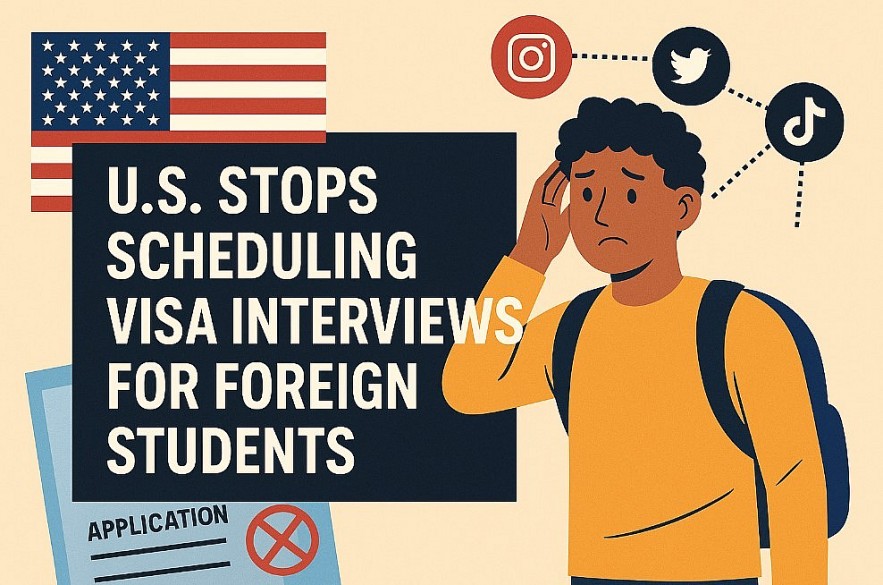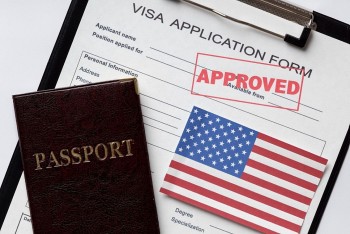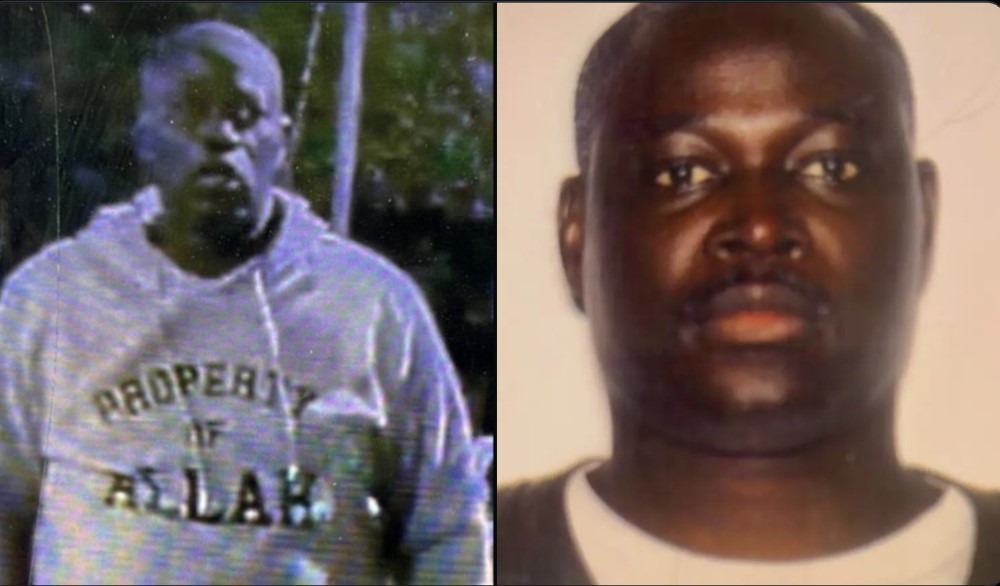U.S. Halts Student Visa Interviews: What This Means and How to Prepare
 What Are the New U.S. Visa Interview Rules in 2025? Don’t Miss These Visa Changes What Are the New U.S. Visa Interview Rules in 2025? Don’t Miss These Visa Changes |
 Fact Check: New U.S. Policy on Terminating International Students’ Legal Status Fact Check: New U.S. Policy on Terminating International Students’ Legal Status |
Overview of the Policy Change
On May 27, 2025, the U.S. State Department announced it would stop scheduling new visa interviews for foreign students and exchange visitors globally. This freeze applies until new guidelines are finalized for an expanded social media vetting process, a move aligning with the Trump administration’s renewed emphasis on immigration security.
Key Points:
-
The pause affects new F (academic student), M (vocational student), and J (exchange visitor) visa interviews.
-
Students who already have interviews scheduled are not affected.
-
This change is part of a broader push to screen applicants' social media presence more thoroughly.
This decision has triggered concerns from universities, education consultants, and students worldwide.
 |
| US stops scheduling visa interviews for foreign students |
Which Visa Categories Are Affected?
The following visa types are included in this policy:
● F-1 Visas
For full-time academic study at U.S. institutions. This is the most common student visa.
● M-1 Visas
For non-academic or vocational studies (e.g., technical training, mechanical studies).
● J-1 Visas
For exchange programs including research scholars, professors, au pairs, and camp counselors.
If you're planning to apply for any of these in the coming months, your timeline is likely to be disrupted.
Why Is the U.S. Expanding Social Media Vetting?
This policy aims to tighten national security by scrutinizing digital footprints. U.S. officials argue that online activity can indicate intent or associations that aren’t obvious in traditional visa documentation.
The Vetting Focus Includes:
-
Public posts, comments, and likes
-
Connections with flagged individuals or organizations
-
Keywords or hashtags deemed sensitive
-
Political or religious expressions considered "extremist"
This vetting may span multiple years of your digital history across platforms like Instagram, Facebook, X (formerly Twitter), TikTok, and YouTube.
Historical Context:
Social media vetting began in earnest in 2019 but was limited in scope. The new move seeks to systematize and expand the process, standardizing it across all consulates.
What This Means for Students and Institutions
Short-Term Consequences
-
Delays in Enrollment: Students accepted to Fall 2025 programs may not arrive on time.
-
Financial Stress: Tuition deposits, housing, and travel plans are in limbo.
-
Increased Application Anxiety: Many are unsure how their digital history might be interpreted.
Long-Term Implications
-
University Revenue Loss: U.S. institutions stand to lose billions from reduced international enrollment.
-
Global Reputation Risk: America may seem less welcoming to international talent.
-
Policy Volatility: Unpredictable immigration changes discourage prospective students.
 |
| State Department Issues Temporary Pause in New Student Visa Applications |
How to Prepare and Protect Your Visa Chances
Step 1: Don’t Panic
If your interview is already scheduled, you’re still in the system. Proceed as normal unless otherwise instructed.
Step 2: Pause New Applications
If you haven’t booked an interview yet, wait for updates. Avoid submitting incomplete or outdated information.
Step 3: Review Your Digital Footprint
Everything you’ve posted publicly is now a potential visa factor.
Step 4: Stay in Touch With Your School
Universities are providing frequent updates via international student offices and legal departments.
Step 5: Monitor State Department Announcements
Only official sources should guide your decisions.
Step-by-Step Social Media Audit Guide
Use this checklist to clean up and secure your online presence:
Profile Audit
-
Set sensitive posts to private
-
Remove or hide controversial comments
-
Update bios and profile pictures to reflect your academic/professional persona
Content Audit
-
Delete:
-
Political memes
-
Sarcastic or joking references to violence
-
Overly provocative posts
-
-
Clean up:
-
Tagged posts
-
Stories highlights
-
Outdated posts that no longer represent your views
-
Privacy Settings
-
Turn off public comment options on old posts
-
Enable two-factor authentication
-
Audit app permissions (who can post on your behalf?)
Backup Your Content
Before deleting anything, download your data archive in case it’s needed later for context.
FAQs
What if I have already paid my SEVIS fee?
Your SEVIS payment remains valid for 12 months. Monitor the situation, and rebook your interview when slots reopen.
Are dependents of student visa holders affected?
Yes. Interviews for spouses and children on F-2, M-2, and J-2 visas are also paused.
How will consulates evaluate my social media?
The exact criteria aren’t public, but they’re likely to flag:
-
Radical or violent ideology
-
Fake identities or multiple aliases
-
Suspicious affiliations
Can private accounts still be reviewed?
In most cases, no. However, U.S. authorities can request access during further investigation phases.
What happens if my visa is denied based on social media?
Unfortunately, social media-based denials are hard to appeal. Once flagged, reapplication success is limited.
Final Thoughts and Strategic Recommendations
The U.S. pause on student visa interviews and the expansion of digital vetting marks a turning point in global student mobility. It’s no longer enough to submit solid academic records—you now have to be digitally clean and politically neutral online.
Strategic Recommendations:
-
Be Transparent: Don’t attempt to erase everything; instead, show growth and maturity online.
-
Build a Professional Persona: Use LinkedIn or a personal website to highlight your goals and achievements.
-
Practice Digital Minimalism: If unsure, say less online. It’s easier to explain a quiet account than a controversial one.




























